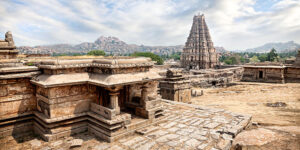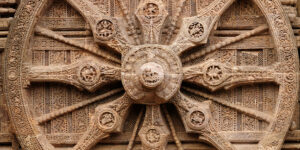Never before in history has Indian culture been studied by more students than it is today in the curricula of formal education systems in America. It is an integral part of the today’s World Civilization and World History courses at both K-12 and college levels. Through these courses millions of students acquire “authoritative”—but questionable—knowledge about Indic Civilization.
In order to ensure an authentic narrative of their culture, centers for advanced studies in Chinese, Japanese and Islamic civilization, religion, and culture have grown exponentially across American higher education. However, advanced, comprehensive programs in Indic civilizational and religio-cultural studies barely exist. The importance and influence of such centers of study are not well understood by Indian Americans. The South Asia centers which do exist focus on the socioeconomics and geopolitics of the South Asian nations while minimizing the relevance of the Indic Civilization and its traditional religion and culture.
A critical problem revolves around the prevailing narrative about Indian Civilization in general and of Hindu dharma in particular. The key to both is the concept of dharma, meaning “that which upholds,” or “sustains,” which defines the uniqueness of Indic civilization and accounts for its uninterrupted continuity for over five millennia. However, the equation of dharma with religion as interpreted by today’s Euro-centric scholars prevents comprehensive appreciation of its historic import as a system of wisdom. This misunderstanding threatens the very definition of authentic Indic identity as a significant component of world history and civilization.
The Dharma Civilization Foundation (DCF) is a Los Angeles-based 501-c(3) non-profit corporation, of which I am a trustee and founding president. DCF was created to promote the multidisciplinary study of, and research in, dharma at accredited institutions of higher education—colleges and universities. Engaging with highly qualified faculty, DCF seeks to advance an integral and transformative approach to understanding Indic culture, religions and civilization that will support a narrative of India’s past which is consistent with the actual lived experience of dharma. This effort is both meaningful in the present global and Indian context and inspirational for the future, as a counterpoint to the prevailing Euro-American version of Indian culture.
DCF aspires to fulfill its mission by creating appropriate academic and intellectual infrastructure, including professorships, centers for advanced study, fellowships, scholarships, endowed chairs and innovative degree programs, journals, book series and other publishing projects. Several of these have already been launched.
DCF and the Graduate Theological Union, which functions in collaboration with the University of California, Berkeley, have recently agreed to enter into a partnership. The goal is to establish a Center for Dharma Studies within GTU, as well as the first Graduate School of Hindu Dharma Studies in higher education as an independent institution affiliated with GTU.
In this endeavor, the philosophy of the DCF is: The Concord, rather than the Clash, of Civilizations—Ekam sad vipra bahudha vadanti (“Truth is one, the wise ones speak of It by many names”). DCF invites the Indo-American community to get engaged with this historic vision and mission and contribute towards its fulfillment.



